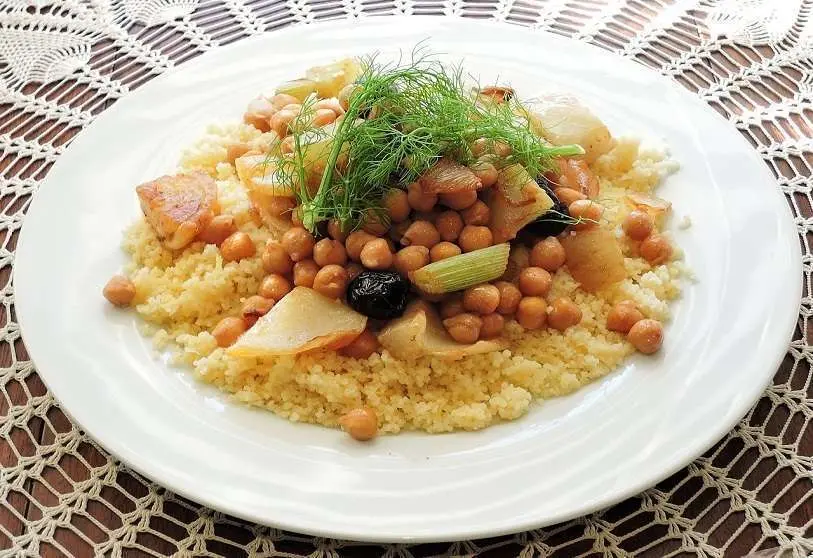Los Caballos del Vino, el cuscús y las saunas finlandesas, declarados Patrimonio Inmaterial de la Humanidad

The tango, Chinese calligraphy or the festival of the patios of Cordoba have been joined in the list of Intangible Cultural Heritage of Humanity by the preparation of couscous, the art of French-Swiss mechanical watchmaking, the culinary practices of street food in Singapore and the "chamamé", music and dances of the Argentine province of Corrientes, among other traditions.
The 15th session of the Intergovernmental Committee for the Safeguarding of the Intangible Cultural Heritage, chaired on this occasion by the Jamaican Minister of Culture, Gender, Entertainment and Sport, Olivia Grange, brought together more than 800 online participants from nearly 140 different countries and selected 32 traditions from different parts of the world.
"This is an example of international cooperation that we are particularly proud of," said UNESCO in its Instagram account after the announcement of the inclusion of knowledge, practices and traditions linked to the preparation and consumption of couscous in the Intangible Heritage. A candidature that was presented by Algeria, Mauritania, Tunisia and Morocco.
The Tunisian practice of passive fishing on the Kerkennah Islands, known as "charfiya", which is a traditional method characterized by the use of hydrographic practices and the relief of the seabed, will also be considered as Intangible Heritage.
The joint candidacy of France and Switzerland was the art of mechanical watchmaking and artistic mechanics, which according to UNESCO "is a crossroads of individual and collective skills, both theoretical and practical, ranging from craftsmen to entrepreneurs, museums and schools, and which seek to transmit these manual techniques, halfway between tradition and innovation".
France, along with Luxembourg, Belgium and Italy, were also able to celebrate the inclusion of the musical art of the trumpet player in the list. Another approved European candidacy was Finland's sauna culture, which, according to the United Nations agency, "involves much more than simply washing oneself. In the sauna, people clean their bodies and minds and adopt a sense of inner peace".
In the case of other countries, Azerbaijan has seen the exaltation of pomegranate cultivation and culture recognized. In Egypt, the manual production of sa'eed fabric has been included, which requires a lot of time and patience. Zambia, for its part, has managed to make the "budima" warrior dance part of the list, while the Arab Emirates and Oman have done so with dromedary races.
Paraguay has celebrated the inclusion of tereré, an ancestral drink that the UN body has cited as an example of "cultural practice that promotes social cohesion and helps to raise awareness of the importance of the rich Guaraní heritage, both culturally and botanically".
"It is an occasion to celebrate culture, to celebrate diversity and to celebrate especially all the things that unite us," said the networked agency.
In the case of Spain, the UN agency recognised the practice of the Caballos del Vino from the town of Caravaca de la Cruz in Murcia. After a decade of trying to get the nomination approved, they finally managed to do so last Wednesday.
The origin of this tradition goes back to the 17th century, and is related to the transfer of the wine to the Caravaca Castle for the Vera Cruz ritual. The festival is organised by the Bando de los Caballos del Vino, a federation of sixty horsemen's clubs. These clubs participate in three competitions, the Hair Horse Competition, the Harnessing Competition and the Race Horse Competition. The latter is the most popular and consists of a race against the clock to the top of the slope that leads to the castle. The winners of the race and the most colourful harnesses are awarded various prizes.
Unesco has valued "the knowledge and practices relating to the breeding, maintenance, handling and driving of horses which are passed on within families and practising groups, as well as the embroidery techniques learned at home or in workshops". He also wished to highlight the transmission from generation to generation of "the values of respect and collaboration that should govern the relationship between human beings and horses" as well as pointing out that "viticulture and horse breeding are two activities that are inseparable from the economy, history and culture of Caravaca".
The opinion was an explosion of joy in the town of Murcia. "We are happy because this is a recognition of so many generations who, over the centuries, have preserved a beautiful tradition full of values, a festive and cultural event that every year moves us and makes us vibrate with the arrival of the month of May," said the Mayor of Caravaca, José Francisco García.
The tradition had been named International Tourist Interest in 2004, but its recognition as Intangible Heritage guarantees its future for the next generations.








